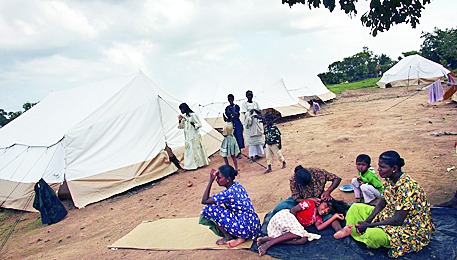
THE STORY OF A BRIEF MARRIAGE: A NOVEL By Anuk Arudpragasam, Fourth Estate, Rs 499
Anuk Arudpragasam hails from a country that grappled with a civil war for almost three decades, but his life as a high-caste Tamil in Colombo was still one of privilege. Wanting to learn more about the people who were directly affected by the war, Arudpragasam started by watching videos and testimonials from the refugee camps on the internet before visiting these sites in person. Once there, he realized how far removed these people were from his everyday realities. Yet, these people shared his language and his history. Arudpragasam turned to fiction to understand his distance with them in order to try and bridge that gap.
Arudpragasam is aware that his choice of English as a language will restrict his readership considerably. He is writing about people among whom, most do not understand the language. His knowledge of English - speaking Tamil in Sri Lanka was frowned upon - is another instance of his entitlement and one of the reasons for the rift that he is trying to close.
But, can one write about a war without having experienced it? Can life in a refugee camp or, for that matter, the deafening silence that follows the explosion of a shell be imagined? Arudpragasam relies on what he saw at the camps to plug the holes between reality and perception. His protagonist, Dinesh, is detached from the rest of the camp. Surprisingly so, since Dinesh himself is a refugee fleeing from both the Liberation Tigers of Tamil Eelam and the government forces. Dinesh is often in awe - a feeling that belongs more to his author than to him - of the magnitude of the losses of those displaced and the ways in which they try to bring normalcy back into their lives in the camp.
Arudpragasam does not dwell on the particulars of war like names, dates or even sides - there is no mention of Sri Lanka or the Tigers; the LTTE is simply referred to as the movement. Keeping the context of the war shadowy, Arudpragasam focuses on the plight of the individual. Dinesh, the only young man in his camp to have escaped the movement, helps transport the wounded to makeshift hospitals and to bury the dead. Amidst the carnage of the final months of the war comes a marriage proposal. A man who has lost his wife and son, feeling incapable of taking care of his daughter, asks Dinesh to marry her. Not because Dinesh is an eligible bachelor but because he is the only man of marriageable age left. Arudpragasam weaves a love story around the sudden intimacy that is thrust upon Dinesh and his wife, Ganga. But love is imagined as a physical bond: "Being close to someone meant the entire rhythm of that person's life was synchronized with yours, it meant that each body had learned how to respond to the other instinctually."
The novel, nevertheless, presents a searing picture of war. In the absence of birds or animals - a setting evoking Auschwitz - Dinesh attributes animal characteristics to the refugees; women who have lost their relatives are likened to the severed tails of geckos, thrashing about in futility; the men remind him of frogs after dissection, mutilated and silent but not dead yet. A strange kind of silence pervades the novel, unbroken even by the wailing women and the exploding shells. The "diaphanous threads" of conversation, which seemed so easy to spin in the life before the war, dissolve, leaving each person reduced to silence.
Arudpragasam's matter-of-fact delivery and placid tone make the descriptions of refugee life more striking - a girl wraps her brother's amputated arm in layers of cloth as one would a piece of "supple gold jewellery"; a woman eats fists full of sand and because sand cannot be chewed she mixes it with saliva and swallows it. However, Arudpragasam's fixation with details leads to the plot losing momentum. Faced with the reality that every moment could be his last, Dinesh acquires a new awareness about his body and his surroundings. He repeatedly examines his own faeces, his hair and nail clippings, his wife, her belongings and so on.
Arudpragasam is also too liberal with the phrases "it is difficult" and "impossible to know" and heavily dependent on similies, not trusting the descriptions to achieve the desired effect. Dinesh's ponderings seem like those of a precocious philosopher's - Arudpragasam is studying philosophy - rather than of a high school student devastated by war.
His shortcomings notwithstanding, the simplicity of Arudpragasam's prose makes it poetic. He realizes that amidst the destruction wreaked by war, time and memory cease to have meaning. The horrors of the past and the uncertainties of the future touch the mundane with sacredness.










